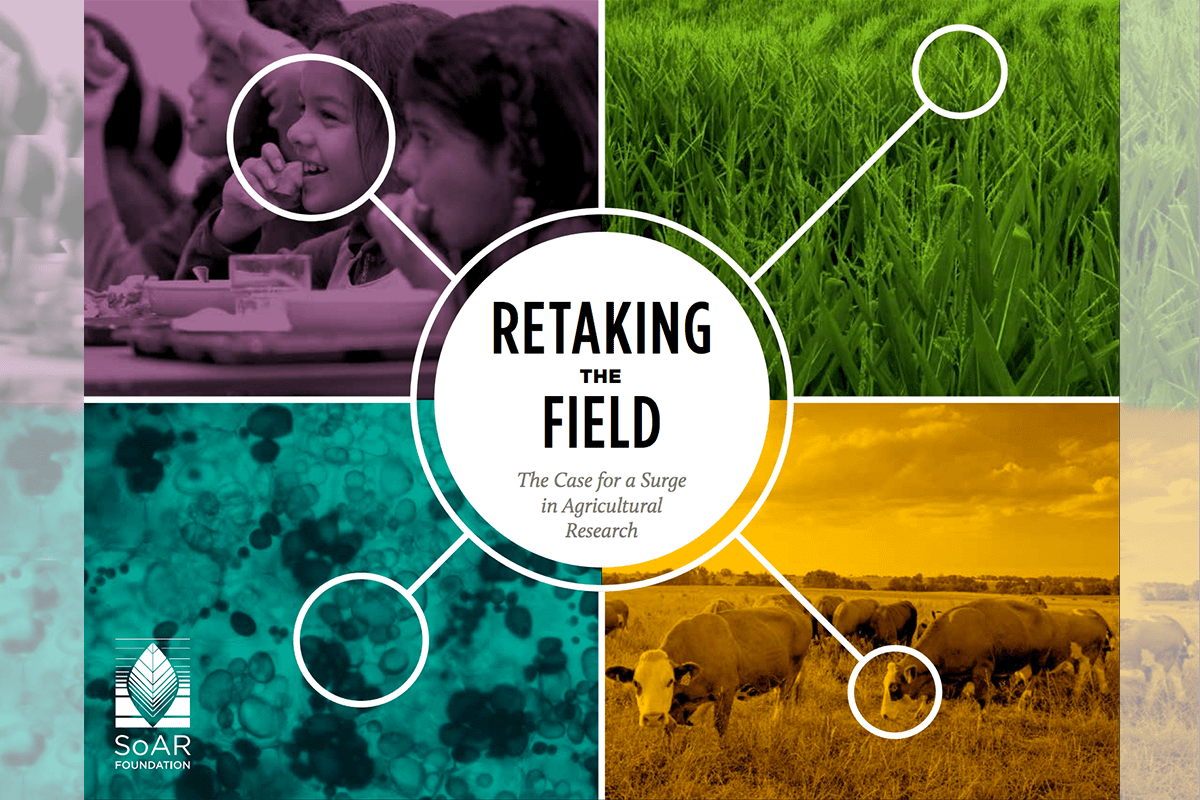A Surge in Federal Support of Agricultural Research Is Needed Now
By Dan Klotz, June 20, 2016

Porcine Epidemic Diarrhea Virus (PEDv) had plagued farms in Europe and Asia for decades, but had not arrived in the US with any impact until the spring of 2013. By the fall of that year, the outbreak had killed 1.4 million piglets and health authorities had to move quickly.
The role of Kansas State University scientist Jason Woodworth, PhD, in stemming the PEDv outbreak before it became an economic disaster is featured in Retaking the Field, a new report from the Supporters of Agricultural Research (SoAR) Foundation. Woodworth found that the virus can be transmitted through pig feed and devised a feed production process that eliminates the virus.
Kansas State is one of 13 universities that have joined SoAR in calling for a surge of federal investment in the agricultural sciences. The accomplishments of scientists at all 13 institutions are highlighted in the report, which also explains why this surge of federal support is needed.
While the growth in US agricultural production has leveled off and the US Dept. of Agriculture’s research budget has been mostly flat for decades, China’s production has increased dramatically, supported by a tripling of the government’s investment in agricultural research.
In 2015, farmers had to cope with another viral outbreak—Avian Influenza. This time, the disease moved too quickly to control and the outbreak caused $2.6 billion in economic damages. Better methods of containment and prevention could have made a difference, had they been developed before the outbreak hit. Like PEDv, Asian Influenza outbreaks have occurred for decades in other continents.
The work of SoAR and its partners will continue to raise the profile of these issues while budget discussions on Capitol Hill continue. “It is time once again,” the report concludes, “to grow more solutions on our own soil.”
